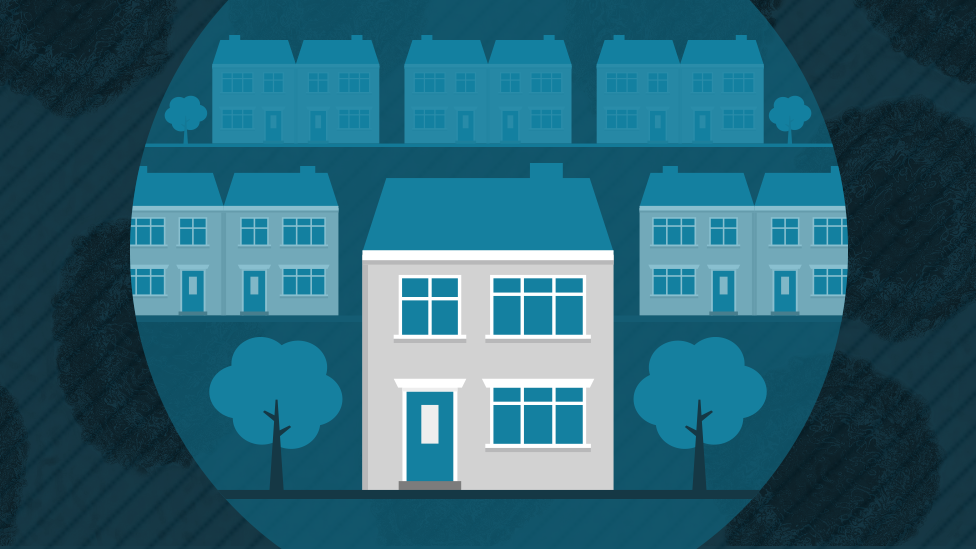No full-time return to the office for over a million
- Published
- comments
Tara Tomes, of the East Village PR firm, in Birmingham, explains why she's ditching the office
Almost all of 50 of the UK's biggest employers questioned by the BBC have said they do not plan to bring staff back to the office full-time.
Some 43 of the firms said they would embrace a mix of home and office working, with staff encouraged to work from home two to three days a week.
Four firms said they were keeping the idea of hybrid working, working from home some of the time, under review.
Currently, people who can work from home are still advised to do so., external
However, that is likely to change in June when the government hopes to end all social distancing restrictions.
"We're never going to go back to working the way we used to work," said Mark Read, chief executive of advertising firm WPP.
But the new ways of using the office require careful planning, he told the BBC.
"People are working from home three to four days a week so we probably need 20% less space, but we're not going to do that if everyone's working from home on Mondays and Fridays."
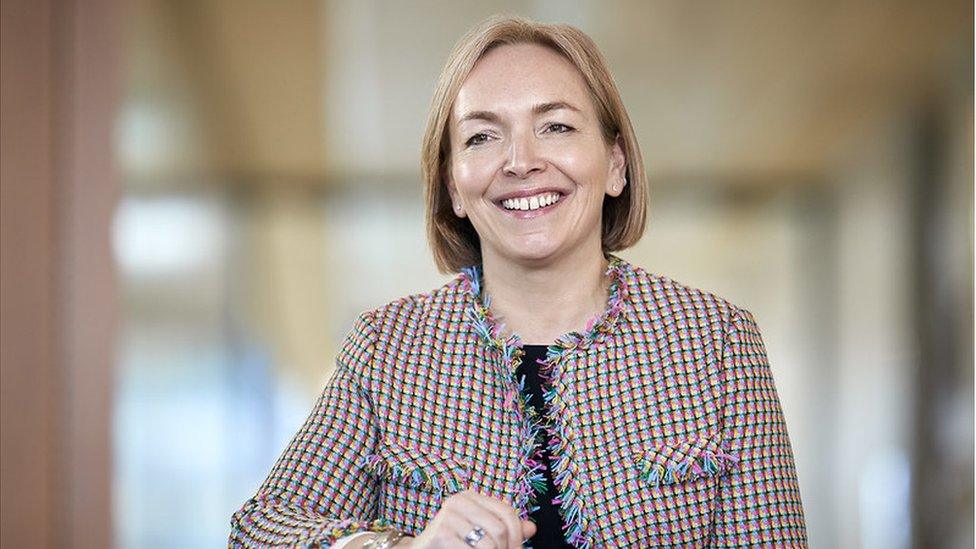
Other companies cite "smart working" and "flexibility" as reasons for introducing hybrid working, with many suggesting that workers would be able to make their own choices about how often they come into the office.
Danny Harmer, chief people officer at insurance giant Aviva - which has 16,000 UK workers - said 95% of its workers said they would like to be able to spend some of their time working flexibly and remotely in different locations.
But she said the company had to be mindful that many staff appreciate being in an office, such as those who live alone or do not have a suitable place to work.
Recruitment firm Adecco, which has 34,000 workers, said about four-fifths of its staff now work remotely.
"Rather than having pre-set rules we are encouraging our leaders to engage with colleagues to implement strategies that work for their business," it said.
The BBC questioned 50 big employers, ranging from banks to retailers, to get an idea of when workers may return to the office.
The firms contacted by the BBC covered 1.1 million workers in the UK.
Reopening offices
Businesses that depend on custom from office workers - such as cafes and restaurants - are keen for them to return as soon as possible.
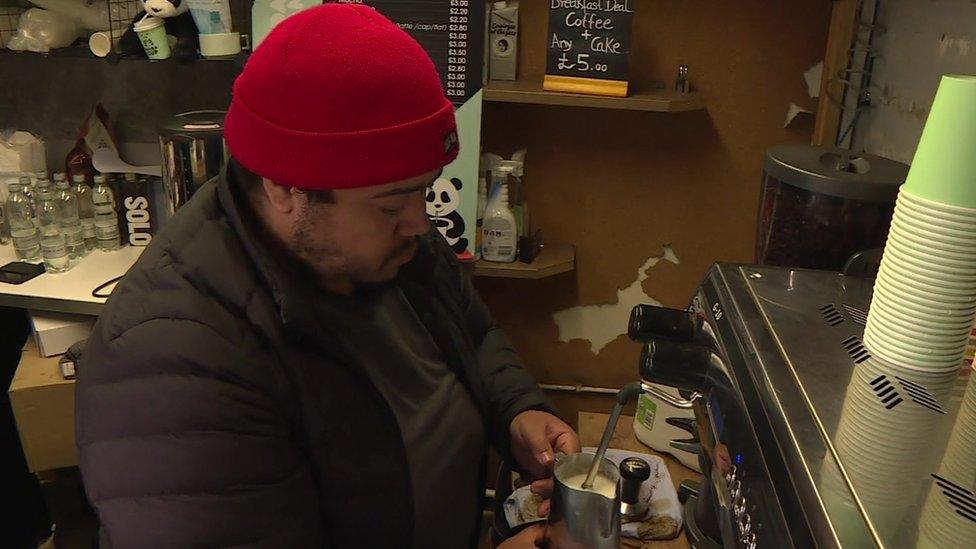
Joao Almeida, from Panda Cup Coffee, relies on office workers for trade
"We rely really heavily on the office trade," Joao Almeida, of Panda Cup Coffee in London's Blackfriars, told the BBC. He was one of millions of people unable to work from home during the pandemic.
"There are locations that have 5,000 people, but only 140 come to the building with most working from home or maybe once a week coming in. That makes it really difficult."
Carl Forder, who owns the Pottergate Pantry sandwich shop in Norwich. saw an 80% drop in business when workers, including 5,000 at the nearby Aviva office, were told to work from home where possible.
"We really hope a lot more office workers return to Norwich when it's safe for them to do so.
"It affects a lot of businesses, from the cleaners who clean the offices, right through to coffee shops and sandwich bars. We want that buzz back again."
'Getting slower'
But in the financial services industry it can be a problem if people work from home, reckons Andrew Monk, chief executive of investment bank VSA Capital.
"People working from home don't realise it but they're gradually getting slower and slower whereas the people in the office aren't," he told BBC Radio Five Live.
"In the financial services industry you need to discuss ideas and discuss what's going on. People working from home miss out on an awful lot of the activity in the office because we don't have time to tell them."
But there may not be a deluge of workers returning this month.
The companies told the BBC they were opening offices "in line with government guidance", which means many plan to reopen offices from 21 June.
Some have already reopened their offices to a limited number of workers.
Investment firm JP Morgan and recruiter Michael Page allowed workers to return from 29 March, while Adecco, recruiter Hays Group and WPP reopened offices on 12 April.
Investment firm Rathbones has allowed workers to return "if they wish", subject to a 25% capacity.
WPP reopened its UK offices at a 30% capacity, but is increasing that to 50% this month.
Many have given workers the choice, with Michael Page saying staff could return to the office "should they choose to do so".
But some other companies are delaying their office re-opening plans.
Outsourcing giant Capita said workers have been told they will work from home until at least the end of June, while Lloyds Bank has asked staff to stay at home until at least the summer.

'Dreading it' or 'can't wait' - what do workers think?
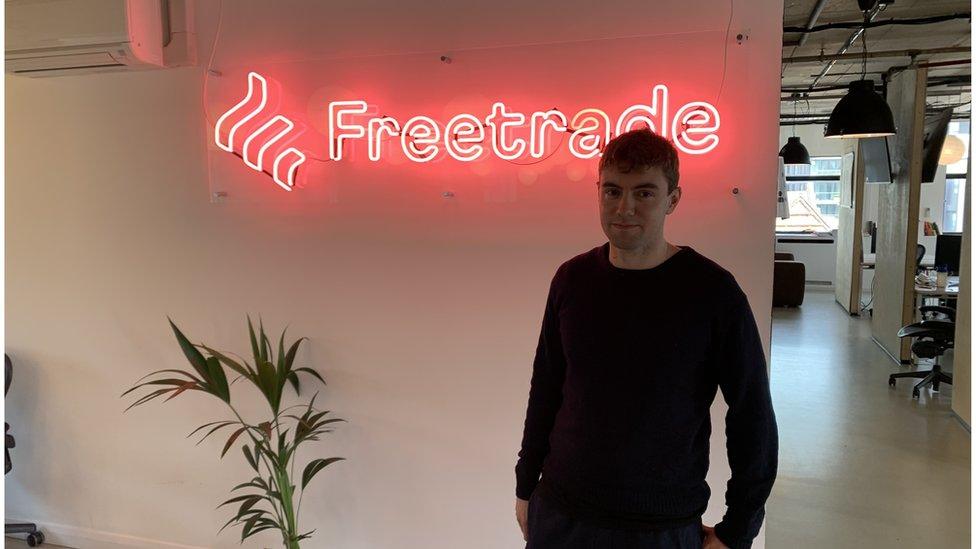
David Kimberley: "It's depressing waking up and commuting to your kitchen."
Tom, who works in property, is not looking forward to going back to the office. The commute is long, expensive, uncomfortable and unnecessary, he told the BBC.
"My office is modern and seemingly comfortable. But the culture can be difficult and the false familiarity is suffocating. It's a petri dish of anxiety and breeding ground of mental health issues."
He says working at home is more comfortable.
"The technology enables a more inclusive mode of working where information is shared more easily and talent can shine. There's also more time for family and more time for real friends."
In contrast, David Kimberley said he "couldn't wait". He returned to the stockbroker's office he works at two weeks ago.
"There's something healthy about having a psychological separation between your work and home life. I find that hard to do when I'm working from home," he told the BBC.
"There's something quite gloomy, especially in winter, about working from home, and it's depressing waking up and commuting to your kitchen.
"It also makes it much harder to collaborate. I work closely with another member of the team and in the office we can sort things out in seconds, When working from home it can take 10 minutes to get a response, and you have no real idea about how they're feeling as you can't see them to gauge their emotions."

Shutting sites
Only a few of the companies surveyed by the BBC have been shutting offices, with some saying they will wait until leases run out.
Capita has closed 49 out of 294 of its offices since the start of the pandemic while accountants Deloitte has closed offices at Gatwick, Liverpool, Nottingham and Southampton.
Lloyds Bank said it planned to close 20% of its offices over the next three years while NatWest closed its Regent House, London office last summer, in a move that had been planned, but speeded up by the pandemic.
Newspaper group Reach has closed its district offices as part of a move to a hub-based model. Meanwhile, Welsh Water closed its head office last year.
But not all are keen on the move away from offices.
WPP boss Mark Read says he worries about the long-term impact on the company's culture and training.
"Advertising and creative industries are something you learn from your colleagues and you can only do that, really, if you're around them in an office."
Accounting software firm Sage has just opened a new office - planned before the pandemic - which has space for 1,800 people.
Sage's chief people officer Amanda Cusdin says that despite using a mix of home and office working going forward, the office will still be needed.
"We know for a lot of people maybe don't have a quiet space to work at home and would rather do it in the office."
Related topics
- Published31 March 2021
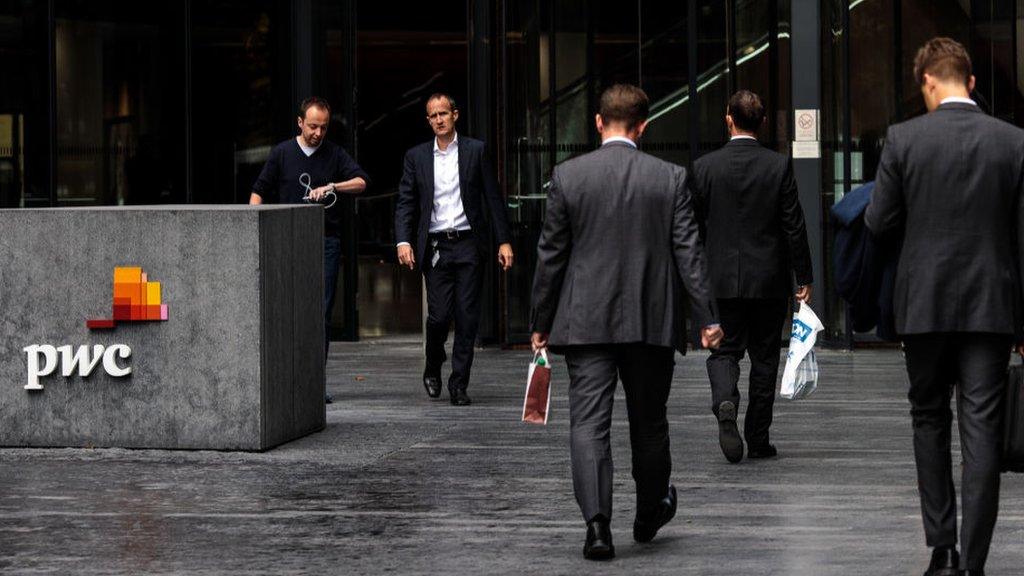
- Published1 July 2022

- Published26 January 2022
